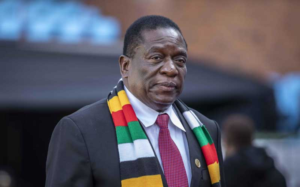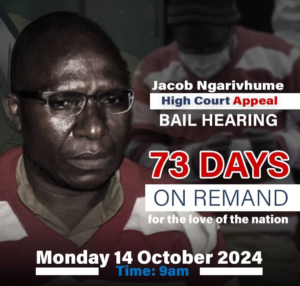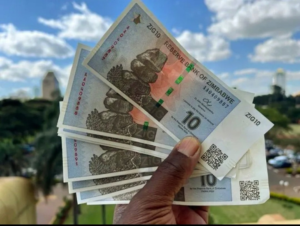OPPOSITION MP SUPPRESSED AFTER RAISING REINSTATEMENT OF RECALLED LEGISLATORS

In a dramatic session of the Zimbabwean Parliament, confrontation erupted between Speaker Jacob Mudenda, Zanu PF Chief Whip Pupurai Togarepi, and opposition Citizen Coalition for Change (CCC) Harare West MP Joana Mamombe. The contention arose when Mamombe sought clarification on the reinstatement of previously recalled CCC MPs, referencing a decision by the Inter Parliamentary Union (IPU) Committee on the Human Rights of Parliamentarians.
The IPU, a global organization of legislatures representing national parliaments, issued a report on March 27 calling for the reinstatement of 23 CCC MPs. These MPs were removed from their positions at the instigation of self-proclaimed opposition party secretary-general Sengezo Tshabangu, whose actions received backing from key Zimbabwean institutions, including the parliament, the executive, the judiciary, and even state security agents.
During the parliamentary session, Mamombe’s attempt to discuss the IPU’s report and its implications for the reinstated MPs was promptly interrupted. Togarepi challenged the relevance of reintroducing IPU concerns, which he claimed had already been debated and settled. Mudenda supported Togarepi’s stance, stating that the issues raised by Mamombe had been addressed adequately in previous discussions and during the IPU Assembly, where he personally responded on behalf of Zimbabwe.
Mamombe countered, expressing frustration over not being allowed to fully present her point of privilege. Her attempts were cut short by Mudenda, who deemed the government chief whip’s interruption justified and dismissed Mamombe’s concerns as already settled. This shutdown in parliament highlights a significant tension between the ruling party and the opposition, reflecting deeper issues of governance and legislative fairness in Zimbabwe.
The IPU’s concerns about the recalls are profound. They argue that these actions compromise the foundational principles of free representational mandate and freedom of expression. The recalls not only helped Zanu PF regain some urban constituencies but also signaled a troubling pattern of repression, especially considering the backdrop of the disputed 2023 elections and ongoing erosion of judiciary independence.
Moreover, the IPU expressed doubts about the legitimacy of the communication that led to the MPs’ recall. Despite an official letter from Nelson Chamisa, the former CCC leader, which identified Tshabangu as an impostor, it was disregarded because it was reportedly received after the decision to recall. This, according to the IPU, warrants further clarification and discussion, which the Zimbabwean parliamentary authorities seem reluctant to allow.
This incident in the Zimbabwean Parliament sheds light on the intricate and often contentious nature of political governance in Zimbabwe. It reveals the challenges opposition parties face in a landscape dominated by a single party, where parliamentary and judicial processes can sometimes reflect broader political objectives rather than uphold democratic principles and human rights. The suppression of Mamombe’s queries not only underscores the ongoing struggles within Zimbabwe’s legislative framework but also calls into question the commitment of Zimbabwean authorities to international human rights standards and the fair representation of its people.



